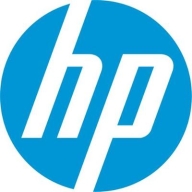

HP Wolf Security and VMware Carbon Black Endpoint are two prominent endpoint security solutions. HP Wolf Security is often highlighted for its straightforward pricing and robust support, while VMware Carbon Black Endpoint is noted for its advanced feature set, making it a worthwhile investment for many users.
Features: HP Wolf Security users value its seamless integration, comprehensive threat detection capabilities, and robust customer support. VMware Carbon Black Endpoint stands out with its advanced analytics, extensive endpoint visibility, and superior feature set. Despite the strengths of both products, VMware Carbon Black Endpoint's advanced features give it an edge.
Room for Improvement: HP Wolf Security needs more detailed reporting, enhanced customization options, and streamlined user management. VMware Carbon Black Endpoint could improve by reducing false positives, enhancing usability, and optimizing resource efficiency. Both products have areas to enhance, focusing on reporting for HP Wolf Security and reducing false alarms for VMware Carbon Black Endpoint.
Ease of Deployment and Customer Service: HP Wolf Security is generally regarded as easy to deploy with commendable customer service. VMware Carbon Black Endpoint also offers easy deployment but receives higher marks for its extensive support resources, providing a slight advantage in overall support and deployment experience.
Pricing and ROI: HP Wolf Security is recognized for its transparent and reasonable pricing, offering good ROI. VMware Carbon Black Endpoint, with a higher price point, is considered worth the investment due to its advanced features and better returns. While HP Wolf Security offers competitive pricing, VMware Carbon Black Endpoint’s sophisticated feature set justifies its higher cost, delivering better ROI for users.

HP Wolf Security is a comprehensive cybersecurity solution that bolsters your organization's cyber-resilience on multiple fronts. With its full-stack security approach, it ensures layered protection from hardware to the cloud, providing a robust defense against cyber threats. HP Wolf Security introduces endpoint isolation, a cutting-edge feature that effectively halts threats that may go unnoticed by Next-Generation Antivirus (NGAV) and Endpoint Detection and Response (EDR) systems. Moreover, it extends its security coverage to printers, equipping them with advanced detection and self-healing capabilities to further safeguard your digital ecosystem. This integrated solution streamlines IT and security risk management, resulting in fewer alerts and false positives, and reduces the time and effort required for endpoint incident analysis and remediation. Notably, HP Wolf Security prioritizes productivity, allowing you to manage risk without disrupting the user experience, enabling worry-free work from anywhere, and offering rapid IT disaster recovery at scale.
VMware Carbon Black Endpoint provides comprehensive endpoint security against ransomware, spyware, malware, and viruses, catering to both cloud and on-premise environments.
VMware Carbon Black Endpoint facilitates endpoint detection and response, threat hunting, application control, antivirus support, and protection for virtual and physical machines. Features include intelligent learning, whitelisting, and integration with other security tools, making it suitable for distributors, MSPs, and enterprises seeking advanced threat defense and real-time monitoring. With its capability to detect and stop malicious executables, it supports both offline and online environments and offers tools like command shell access for deeper investigation.
What are the key features of VMware Carbon Black Endpoint?VMware Carbon Black Endpoint is implemented across various industries including technology, healthcare, and finance. Organizations utilize it in cloud and hybrid environments, enhancing their security frameworks with real-time monitoring, intelligent learning, and robust threat detection capabilities tailored to their specific industry needs.
We monitor all Endpoint Protection Platform (EPP) reviews to prevent fraudulent reviews and keep review quality high. We do not post reviews by company employees or direct competitors. We validate each review for authenticity via cross-reference with LinkedIn, and personal follow-up with the reviewer when necessary.